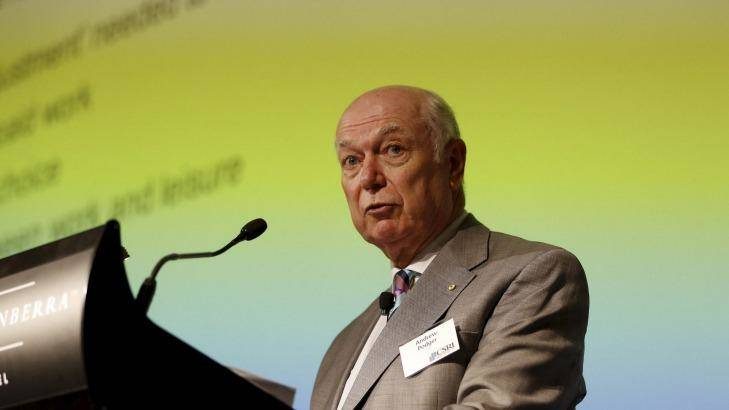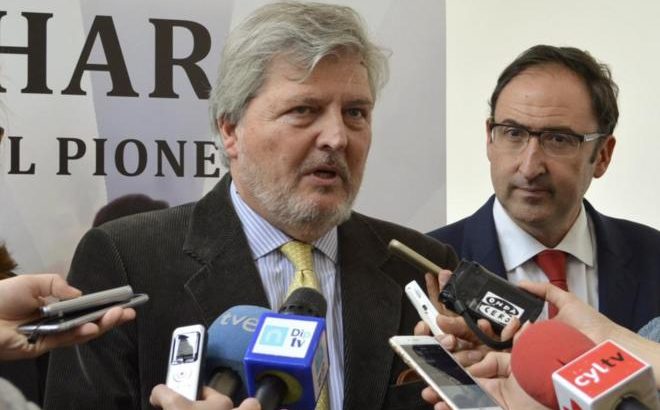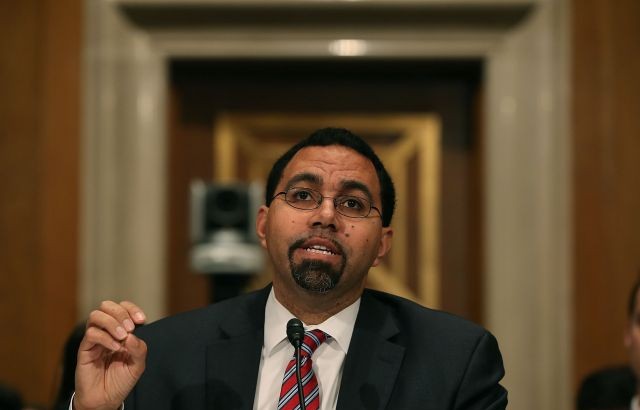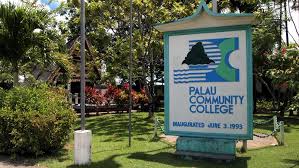Australian National University’s School of Music ‘poorly managed by the university at all levels’
Australia/ Mayo de 2016/The Bellingen Shire Courier Sun
Resumen: El ex Comisionado de Servicio Público Andrew Podger dijo que la profundidad de los sentimientos y el estrés emocional que había identificado en la Universidad Nacional de Australia, mientras revisaba el futuro de la Escuela de Música ha sido «sorprendente».
Se ha identificado un punto de referencia de 200 estudiantes universitarios a fin de que la escuela se convierta en económicamente sostenible, pero su documento de consulta también identifica la crisis actual del número de estudiantes, con los estudiantes que hayan caído desde 165 en 2008 a una estimación de 67 en espera de dos semestres de matrícula. la matrícula de posgrado una reducción de 24 a 17. Esto significa que la escuela tiene que crecer en un 300 por ciento de sobrevivir.
Former Public Service Commissioner Andrew Podger said the depth of feeling and emotional stress he had identified at the Australian National University as he reviewed the future of the School of Music had been «striking» and wrongdoing had been identified at all levels of the university.
But Professor Podger said staff had given him positive and constructive feedback on Monday as he unveiled a consultation paper on options to shore up the troubled institution.
He has identified a benchmark of 200 undergraduate students in order for the school to become financially sustainable, but his consultation paper also identifies the current crisis in student numbers, with undergraduates having fallen from 165 in 2008 to an estimate of 67 pending semester two enrolment. Postgraduate enrolments have fallen from 24 to 17.
This means the school must grow by 300 per cent to survive.
The former public service commissioner was appointed by new Vice Chancellor Brian Schmidt in February to steer the future of the troubled School of Music.
Professor Podger said «the whole situation has been poorly managed by the university at all levels allowing the distrust and emotional stress to fester».
Professor Schmidt wrote a blog to staff and students on Monday saying «There is no one person or group of people responsible for the difficulties the school has had over many years but it is clear from the discussion paper that the university has not handled the challenges facing the school very well. I want to see us do better».
Professor Podger’s paper proposes a number of options, which will now be put to the community for further consultation before he provides a final document in August.
Options include the school’s curriculum including a stream that produces elite national and international musicians, a stream for those seeking academic careers on the development or study of music and those seeking other professional careers in the music industry, and a stream for those just wanting to enhance their music education while pursuing different careers.
Whatever approach is taken, Professor Podger emphasised the importance of retaining a strong performance element.
Suggested specialities for those elite performers could include piano, strings, brass, woodwind, guitar and percussion, with wide support for the reassertion of the school’s excellence in jazz reputation.
«There is a strong desire, within the school, across the ANU, across the Canberra community and across the wider Australian tertiary music community, for the future of the ANU School of Music to be resolved,» Professor Podger said.
«People desperately want to put the past behind and to identify a clear vision for the future that can be pursued with passion and enthusiasm.»
But his paper acknowledges the depth of the despair and damage apparent at the school, which is largely a result of the change of model and funding cuts instituted by Ian Young.
«My assessment is that, while a number of people have behaved inappropriately and have exacerbated issues by causing distrust, no one person or group can be held solely to blame as the inappropriate and unprofessional behaviour has been broader than that.»
«Some public acknowledgement of this, along with a moratorium on any action in response to alleged past misdemeanours, may help to clear the air and facilitate cultural repair. It would then be reasonable to expect everyone to support whatever direction the vice-chancellor determines for the school, and to work together under the leadership of the new head of school; equally, anyone then not willing to do so should look to moving on elsewhere.»
He believed Professor Schmidt was determined to address the troubled school.
«He is providing by personal example exactly the sort of leadership needed – all my public service experience reveals the critical importance of the top executive ‘walking the talk’.»
Professor Podger did not believe his review would spark a new round of staff departures following a turbulent 18 months in which a steady stream of acclaimed musicians have left.
«I do not expect staff to go. Indeed, the paper proposes investing in some additional staff to support growth in enrolments back to the levels of a decade ago or higher. It also proposes sessional contract arrangements to improve instrument tuition and performance education, replacing the Performance Development Allowance introduced in 2012.
The ANU has so far failed to attract a new head following the shock departure of Peter Tregear last August – widely understood to have been forced out after calling management to account on staff workload and resourcing issues.
Professor Podger stressed a new leader needed adequate support.
On the vexed issue of governance, with the school run out of the College of Arts and Social Sciences, Professor Podger raised the issue of detaching the school from the college given long-term tensions between the two.
Financially, Professor Podger has set a benchmark of 200 undergraduate students and 20 postgraduate students for sustainability if the university decides to focus on a core curriculum that would provide quality music education for non-elite students.
This would require an increase in the vice-chancellor’s allocation to the school from $1.4 million currently to about $2 million a year and invest as much as $3 million for up to five years in order to attract relevant staff and support while student numbers were built.
Providing the elite stream on top of that would cost $750,000 a year.
There were considerable calls for ACT funding – currently provided through an ArtsACT grant of about $1.4 million a year which is quarantined for music outreach to the community – to be increased.The report also notes the «substantial reductions in the real value of its support over the last 20 years» with the ACT’s contribution falling in real terms from $2.74 million in 1995.
The paper can be viewed athttp://imagedepot.anu.edu.au/scapa/Website/Final_Discussion_Paper_020516.pdf
The story Australian National University’s School of Music ‘poorly managed by the university at all levels’ first appeared on The Sydney Morning Herald.










 Users Today : 28
Users Today : 28 Total Users : 35459934
Total Users : 35459934 Views Today : 33
Views Today : 33 Total views : 3418498
Total views : 3418498